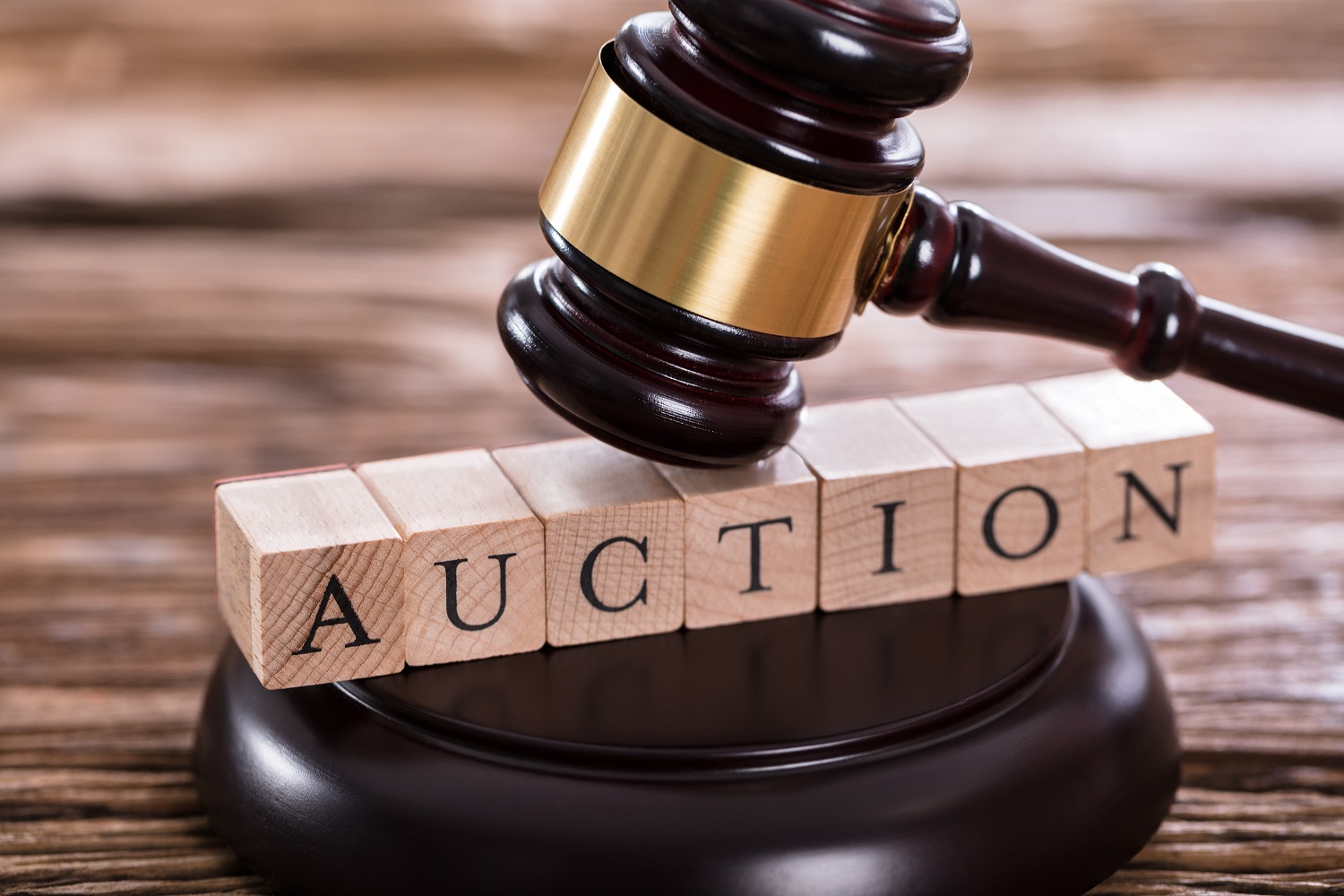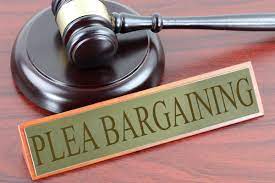8.00 - 9.00
Opening Hour Mon - Fri

Introduction
In today's digital age, protecting intellectual property is more important than ever. Copyright laws play a crucial role in safeguarding the rights of creators, artists, and businesses. In Kenya, copyright legislation provides a framework for individuals and organizations to protect their creative works and encourage innovation. In this article, we will explore the basics of copyright law in Kenya and highlight the importance of seeking legal counsel from a reputable law firm to navigate this complex area.
Understanding Copyright Law in Kenya
Copyright law in Kenya is governed by the Copyright Act, which grants exclusive rights to creators and authors over their original works. This includes literary, artistic, musical, and audiovisual creations, as well as computer programs, sound recordings, and broadcasts. Copyright protection is automatic and arises as soon as the work is created in a tangible form, such as being written down or recorded.
Duration of Copyright Protection
In Kenya, copyright protection generally lasts for the lifetime of the creator plus 50 years after their death. However, there are exceptions for certain works, such as photographs and anonymous works, which are protected for 50 years from the date of publication or creation. It is essential for creators to understand the specific duration of copyright protection for their works to effectively exploit and enforce their rights.
Benefits of Copyright Registration
Although copyright protection arises automatically upon the creation of a work, registering copyright with the Kenya Copyright Board provides additional benefits. Registering copyright provides evidence of ownership and serves as a deterrent against infringement. In case of a copyright dispute, registration simplifies the process of pursuing legal action and seeking remedies. A reliable law firm specializing in intellectual property can guide creators through the copyright registration process, ensuring proper documentation and protection of their works.
Copyright Infringement and Enforcement
Copyright infringement occurs when someone without authorization reproduces, distributes, or publicly performs a copyrighted work. In Kenya, copyright infringement is a civil offense that can result in legal action, injunctions, and damages. A law firm experienced in copyright law can assist copyright holders in enforcing their rights by sending cease and desist letters, initiating litigation, and negotiating settlements.
International Copyright Protection
With the advent of the internet and globalization, protecting copyrighted works beyond national borders has become increasingly important. Kenya is a signatory to various international copyright agreements, such as the Berne Convention and the World Intellectual Property Organization (WIPO) Copyright Treaty. These agreements provide reciprocal protection to Kenyan creators abroad and facilitate the enforcement of copyright in foreign jurisdictions. A knowledgeable law firm can help creators understand and leverage these international agreements to protect their works globally.
Conclusion
Copyright law in Kenya is designed to protect the rights of creators and foster creativity and innovation. Whether you are an artist, author, musician, or business owner, understanding copyright laws and how they apply to your works is crucial for safeguarding your intellectual property. Engaging a reputable law firm with expertise in copyright law can provide you with the guidance and support needed to navigate this intricate legal landscape, protect your creations, and assert your rights when necessary. By taking proactive steps to protect your copyright, you can ensure the long-term viability and success of your creative endeavors.
[*This article generally explains the law in force in Kenya and does not constitute an opinion or a legal opinion. To find out the rules specific to your situation, write to us on info@wjmaxwelll.co.ke or call/WhatsApp on 0733 610 961]

A demand letter is merely a letter. It has no legal effect other than to warn the opposing party of your request/ demands and is usually required prior to taking legal action here in Kenya. It’s actually mandatory. It allows the opposing party to respond to your request but grants you no other rights.
Demand letters are valuable tools for creating records, dispute resolution, and much more.
Many things fall under the umbrella of a “demand letter” including: a cease and desist letter, notice of default, notice of breach, notice of violation, demand to cure, etc. Demand “letters” are generally written, but for the purposes of this post, I also include non-written demands (i.e., a telephone call). The main purpose of a demand letter is to push the other party to settle.
For example, you can send someone a demand letter if you believe that they:
When people cause harm to you, whether physically or financially, most people assume that you will not deal with hassle of court to pursue them for the injury they caused or money owed. A demand letter can send a strong message that you are taking the matter seriously and that you may pursue further action if they file to respond adequately. It is important though that when send a strong demand letter you state the following:
This is the best scenario. The opposing party accepts your request and agrees that the fault you hold against him is correct and that the damages suffered are just. This scenario is possible but highly unlikely. Generally, in a demand letter, you will ask for an amount that will put you in a situation as comfortable as you were initially. Expect the other side to want to negotiate the amount claimed, if only a little. The recipient may have a different version than yours, so the recipient will likely try to reduce their obligation.
This is the most likely scenario. The demand letter serves as an effective trigger to signal the seriousness of its approach and at the same time encourage the opposing party to negotiate in order to avoid a long and costly dispute. The applicant, before sending your demand letter, should preferably determine a minimum threshold below which any amount granted would make him dissatisfied with the damage suffered. He will demand the full amount on the notice and will be happy to receive an amount that falls in between.
The opposing party, if the allegations are well founded, will seek to pay as little as possible and will usually make a first counter-offer much lower than what is required and probably below the minimum threshold you have established (without communicating it of course to them). The negotiation is then initiated and it will end, hopefully, somewhere in between. A very interesting tool for making offers and counter-offers on the web is the Legalhood.com site: it offers a communication channel open at all times, there is no direct confrontation between the parties and that is a lot cheaper.
Remember that the law requires that you try to resolve your dispute through various alternative and / or technological means before going to court. For this reason, it is interesting to invite the other party to negotiate as soon as the demand letter is given. In addition, the legal process can be very long and expensive, in addition to being stressful and exhausting. For these reasons, pouring water into your wine and accepting less compensation can still prove to be a winner. Trying to establish a value for these hidden costs also serves to establish its minimum threshold. Keep in mind that a 2-3 day trial can cost on average over 45,000/=.
In this case, it is not the amount claimed that is the source of the conflict, but the fault itself. The opposing party may disagree with you completely and not acknowledge the facts with which you are accusing them. In this situation, negotiation is unnecessary. If you haven’t already done so, it may be best at this stage to consult a lawyer to verify the legal merits of your action. If your request is well founded and is supported by good evidence, then it will be necessary to appeal to the courts since the other party refuses any form of agreement.
A fourth possibility may arise following the sending of a demand letter. The defending party may simply not respond at all. In this case, make sure you sent it to the correct contact details. Do not forget to send it either by registered mail or by a process server. If you are certain that it has reached the recipient and the recipient still has not responded after the deadline granted, you file a suit.
[*This article generally explains the law in force in Kenya and does not constitute an opinion or a legal opinion. To find out the rules specific to your situation, write to us on info@wjmaxwelll.co.ke or call/WhatsApp on 0733 610 961]

Protecting your assets from litigation, creditors and/or creditors is an important consideration for anyone who wants to safeguard their hard-earned wealth. Here are some ways to protect your assets:
Create a trust: A trust can be a valuable tool for asset protection. By transferring ownership of your assets to a trust, you can protect them from creditors and lawsuits. You can also control how your assets are managed and distributed to your beneficiaries.
Use an LLC: Limited Liability Companies (LLCs) offer personal liability protection for the owners of the company. By forming an LLC, your personal assets are shielded from business liabilities, meaning that creditors cannot come after your personal assets to satisfy business debts.
Purchase liability insurance: Liability insurance can provide an additional layer of protection for your assets. It can help to cover legal fees and damages in the event that you are sued.
Homestead exemption: If you own a home, you may be able to take advantage of a homestead exemption. This exemption can protect your home from creditors, meaning that they cannot force the sale of your home to satisfy a debt.
Separate your personal and business assets: Keeping your personal and business assets separate can help to protect your personal assets from business creditors. This means setting up separate bank accounts and keeping detailed records.
Estate planning: Having a well-drafted estate plan in place can help to protect your assets and ensure that they are distributed according to your wishes. This can include setting up trusts, naming beneficiaries, and creating a will.
It is important to consult with a qualified Advocate and financial advisor to determine the best asset protection strategies for your specific situation.
This article generally explains the law in force in Kenya and does not constitute an opinion or a legal opinion. To find out the rules specific to your situation, write to us an email on info.wjmaxwell.co.ke

Introduction to Franchising
A franchise is a form of licensing arrangement where a franchisee gains access to a franchisor's exclusive business knowledge, processes, and trademarks. This allows the franchisee to operate a business under the franchisor's name and sell their products or services. In return for obtaining the franchise, the franchisee typically pays an initial startup fee and ongoing licensing fees to the franchisor. Essentially, a franchise is a business partnership in which the owner (franchisor) permits others (franchisees) to operate using its established brand, products, and expertise in exchange for a fee.
The franchisor provides the franchisee with the necessary support, training, and access to established business practices to ensure the success of the franchise.
Franchise Vs Startup
Franchise and startup are two different paths for aspiring entrepreneurs. When you decide to start your own business, you're taking a risk, but it also offers potential rewards both financially and personally. However, venturing into the unknown raises questions like whether your product will sell, if customers will like what you offer, and if your business will generate enough income to survive.
Starting your own business comes with a high failure rate. Statistics show that two-thirds of new businesses survive only two years, and only 50% make it to the five-year mark. To succeed, you have to rely solely on yourself and your efforts.
Achieving your dream of owning a business requires hard work and dedication, especially if you lack experience and support. If this seems overwhelming, another option to consider is the franchise route.
Franchises attract entrepreneurs because they see success stories from other franchisees. They offer a proven and stable business model that has been tested in the market. For instance, if you become a Best Lady franchisee – let’s say Best Lady Cosmetics decided to franchise, most decisions about products, store layout, and employee uniforms have already been made for you. Some franchisors provide training, financial planning, and a list of approved suppliers. However, success is not guaranteed even with these advantages.
Pros and Cons of Franchising
Advantages of franchises include following a ready-made business formula, having market-tested products and services, and benefiting from established brand recognition. On the other hand, franchises have downsides like high startup and ongoing royalty costs. Franchisees must pay a percentage of their sales or revenue to the franchisor, which can range between 4.6% and 12.5% depending on the industry.
There's also the risk of being misled by inaccurate information and paying high fees for a franchise with little or no value. Franchisees may lack control over their territory or the creative aspects of their business. Additionally, securing financing from the franchisor or elsewhere can be challenging, and poor location or management can adversely affect the business.
The franchisor makes money through three main categories of payment in the franchise agreement. First, the franchisee pays an upfront fee to obtain the rights and trademark. Second, the franchisor may receive payments for providing training, equipment, or business advisory services. Finally, the franchisor earns ongoing royalties or a percentage of the business's sales.
Conclusion
In conclusion, franchises offer an established and recognized path to entrepreneurship, reducing some of the groundwork for aspiring business owners. However, it's essential to recognize that success is not guaranteed, and franchises require significant effort and hard work to become profitable.
[*This article generally explains the law in force in Kenya and does not constitute an opinion or a legal opinion. To find out the rules specific to your situation, write to us on info@wjmaxwelll.co.ke or call/WhatsApp on 0733 610 961*]

W.J. MAXWELL & ASSOCIATES is a Law Firm established in 2022 and has rapidly positioned itself as a premier law firm in Kenya, renowned for delivering high-quality legal services. Our firm is distinguished by its market-leading expertise across a broad spectrum of legal areas, including Commercial, Corporate and Business Law, Banking and Finance, Capital Markets, Projects and Infrastructure, Power (Energy, Oil & Gas, and Mining), Mergers, Acquisitions and Private Equity Transactions, Employment and Employee Benefits, Tax, Real Estate, Conveyancing, Property and Construction Law, Succession and Probate Law, Non-profit Organizations, Commercial and Civil Dispute Resolution, Privacy and Data Protection Laws, Aviation and Space Law, Insurance Pension, and Criminal and Civil Litigation.
Our dynamic legal team is structured into three core departments:
1. Commercial and Corporate Law
2. Conveyancing and Property Law
3. Civil and Criminal Litigation
Each department is spearheaded by our experienced partners, who collaborate closely with a dedicated team of Associate Advocates, Legal Assistants, Paralegals, and Support Staff to ensure comprehensive and effective legal solutions for our clients.
We cater to a diverse clientele that spans various sectors of the economy, including individuals, private and public companies both domestically and internationally, local and international banks, financial agencies, pension administrators, and more. Our extensive experience and expertise have been honed through handling numerous complex legal instructions on behalf of our clients.
We support local and international investors in establishing, merging, and expanding their enterprises, leveraging our deep understanding of common law and relevant legislation in Kenya and abroad. Our services include incorporating companies for non-banking services, providing our clients with robust legal foundations for their business ventures.
With a commitment to excellence and a focus on client success, W.J. MAXWELL & ASSOCIATES is your trusted partner for navigating the legal landscape in Kenya and beyond.
Cianda House,1st floor,Room 111,Koinange Street, Nairobi
0733610961
info@wjmaxwell.co.ke